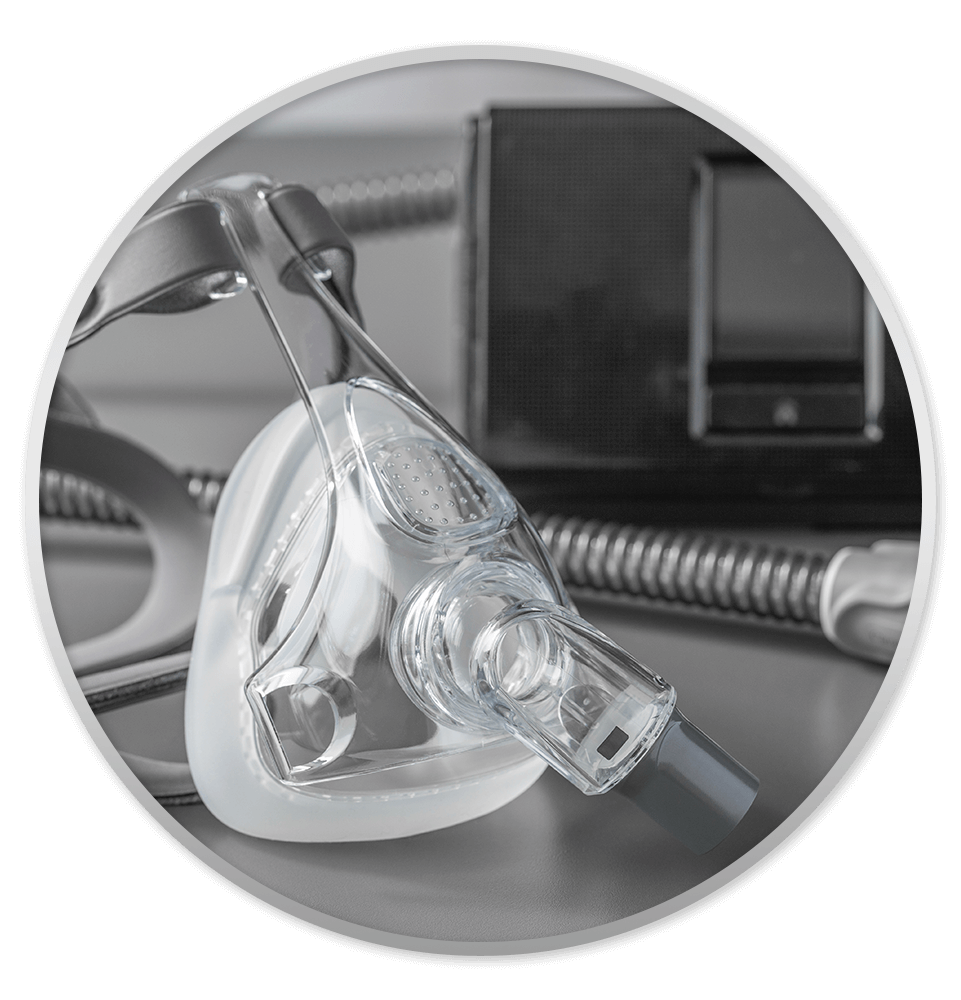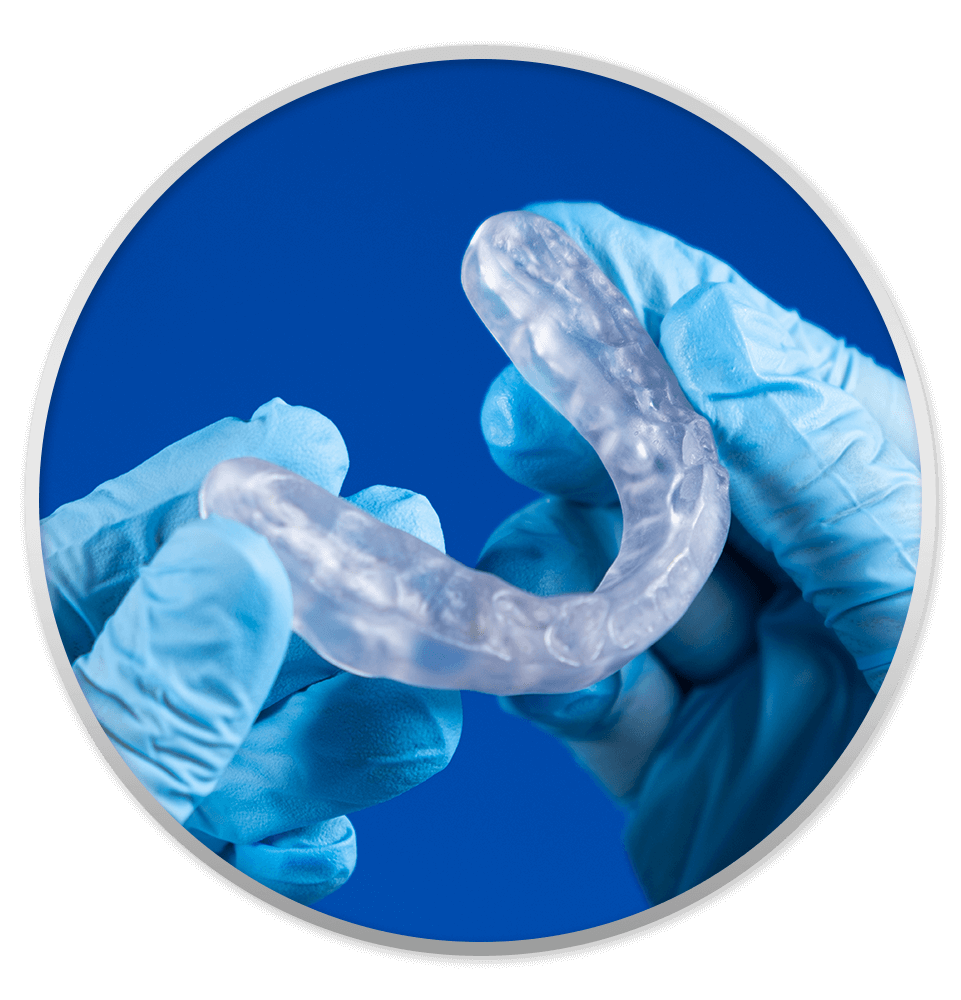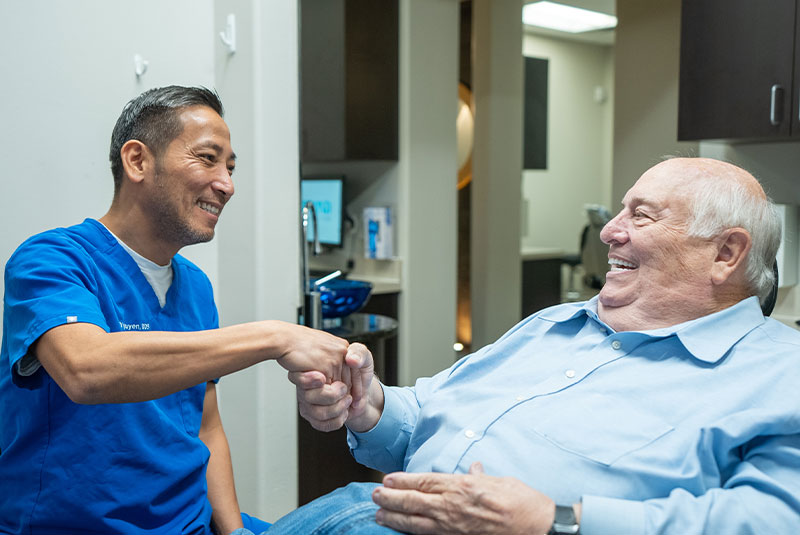

Sleep apnea is a serious condition that causes breathing to stop and start repeatedly while you sleep. It often occurs when the muscles in the throat relax too much, blocking the airway.
Left untreated, it can leave you feeling exhausted even after a full night’s sleep and even increase your risks for severe health issues like heart disease, high blood pressure, and diabetes. At Beyond Dental & Implant Center, we’re here to help you find the right sleep apnea treatment in Dallas, TX, that fits your needs and enables you to breathe easily through the night.
Sleep apnea is different from person to person and has varying levels of severity depending on your unique situation. For some, your breathing disruptions may be mild; for others, you may wake up gasping repeatedly every night.
However, even mild sleep apnea can strain your health. We can connect you with several sleep apnea treatments tailored to your unique needs so you can rest easily and wake up refreshed.

The CPAP machine is one of the most common treatments for sleep apnea. It uses gentle air pressure to keep your airway open throughout the night, ensuring you breathe steadily and get quality sleep. By providing a steady flow of air throughout the night, a CPAP can minimize spikes in carbon dioxide in your system, relieving strain on your cardiovascular system and overall health.

An oral appliance for sleep apnea can be an effective choice for a simpler sleep apnea treatment. This custom-made mouthguard gently repositions your jaw to keep your airway open while you sleep. Many patients find oral appliances comfortable and easy to use. This oral appliance may be all you need for better breathing at night, or it may be usable with a CPAP to help it work better in a lower, more comfortable setting.
When sleep apnea isn’t treated, it can lead to more than just feeling tired during the day. Long-term effects of untreated sleep apnea include high blood pressure, heart problems, and a higher risk of stroke. It can also worsen your mood, memory, and focus, impacting your daily life and relationships.
The lack of quality sleep can weaken your immune system, making it harder to stay healthy. We believe everyone deserves healthy, recuperative sleep and offer affordable sleep apnea treatments in Dallas, TX, to help!
